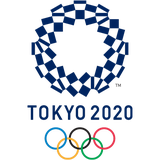





































































































































The debate over esports: Gamers or athletes?
VANCOUVER, British Columbia (AP) — What constitutes a sport? Who precisely is an athlete?
Ballroom dancing and bridge have tried to join the Olympic roster. Professional video gaming gathers for the International Dota 2 Championships this weekend, drawing fans and players from around the globe. Millions will stream the event online.
Those tuning in will see similarities with traditional sports — a stadium packed with cheering fans, analysts in headsets offering commentary.
Some of that structure has been borrowed from other sports, said Erik Johnson of Valve, the company that created the "Dota 2" game and runs the tournament.
But there's a difference when it comes to competition. High-level gamers are tested on how they handle the pressure of being watched by millions of people as they compete for big money, Johnson said
"It's not a physical test, it's a mental test for a lot of these players," he said.
Victor Goossens is the co-CEO of Team Liquid, which won the "Dota 2" championship last year. He said his players spend up to 12 hours a day practicing and studying their game and take care of their physical and mental health in the same way a traditional athlete does.
Goossens' group is always looking for a competitive advantage, so this year they teamed up with technology company SAP to develop software that would allow them to analyze their training and in-game performances.
SAP's Milan Cerny worked with competitors in sailing and tennis before turning to the esports project. Gamers and traditional athletes have a lot in common, he said, including that both are "really, really good at what they're doing."
"They have a lot of knowledge about the discipline that they're good at," he said.
Anyone who thinks gamers aren't athletes is misunderstood, said Dan Cybak, CEO of the Gaming Stadium, a group that's looking to build esports facilities across Canada.
Players spend countless hours honing their eye sight, learning to control their heart rate and perfecting their skills. They follow strict eating, sleeping and training regimes, just like traditional athletes, he said.
"They have to be on top of their game, they have to choose the right champions," he said. "Their skill set and where their mind is at a level that a lot of us can't play at."
Cybak believes esports will make it into the Olympics someday.
Justin Simpao with the University of British Columbia's esports association doesn't see professional video gaming as falling under the same category as hockey or basketball.
"Esports is not a real sport, but it is still a competition," he said, adding both traditional sports and gaming all come down to competitive entertainment.
